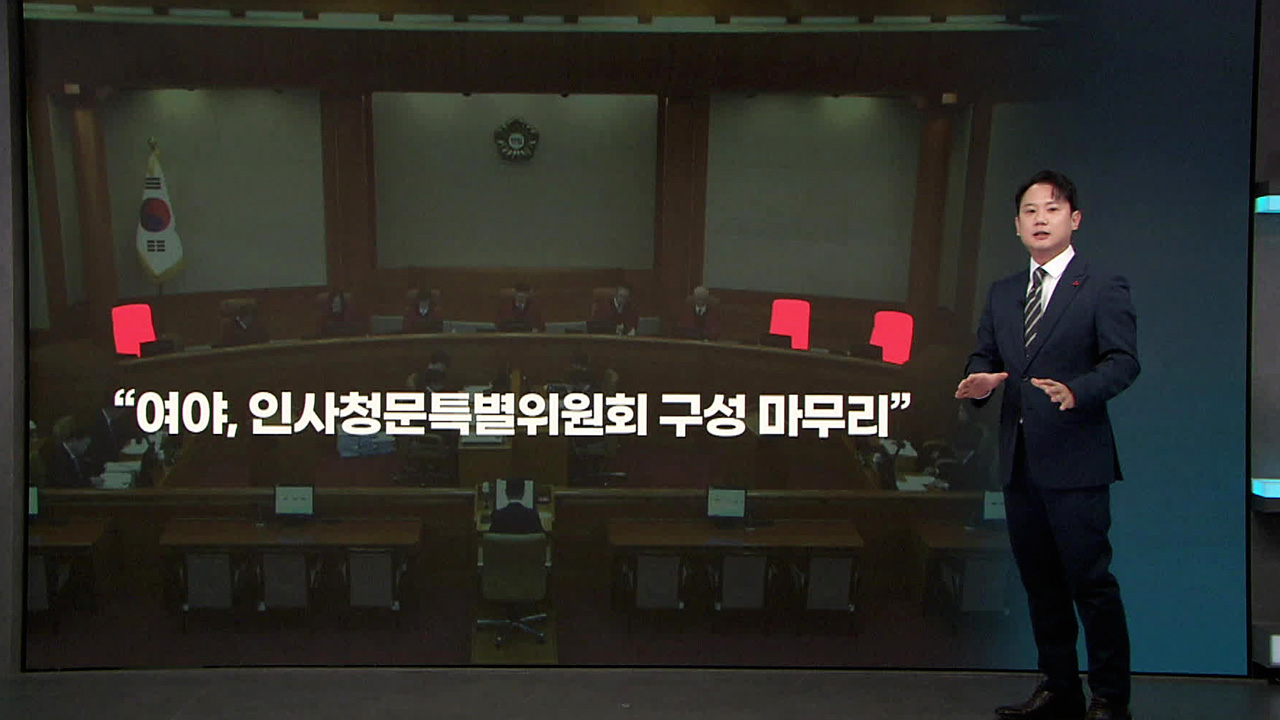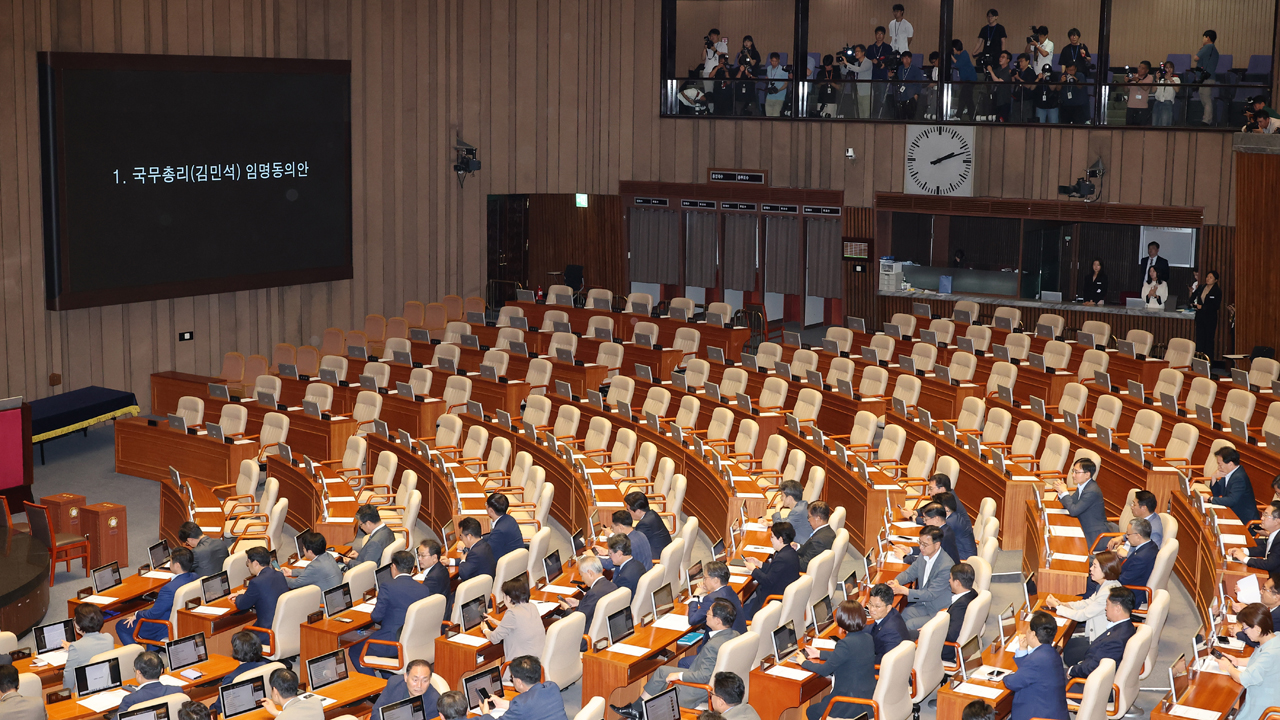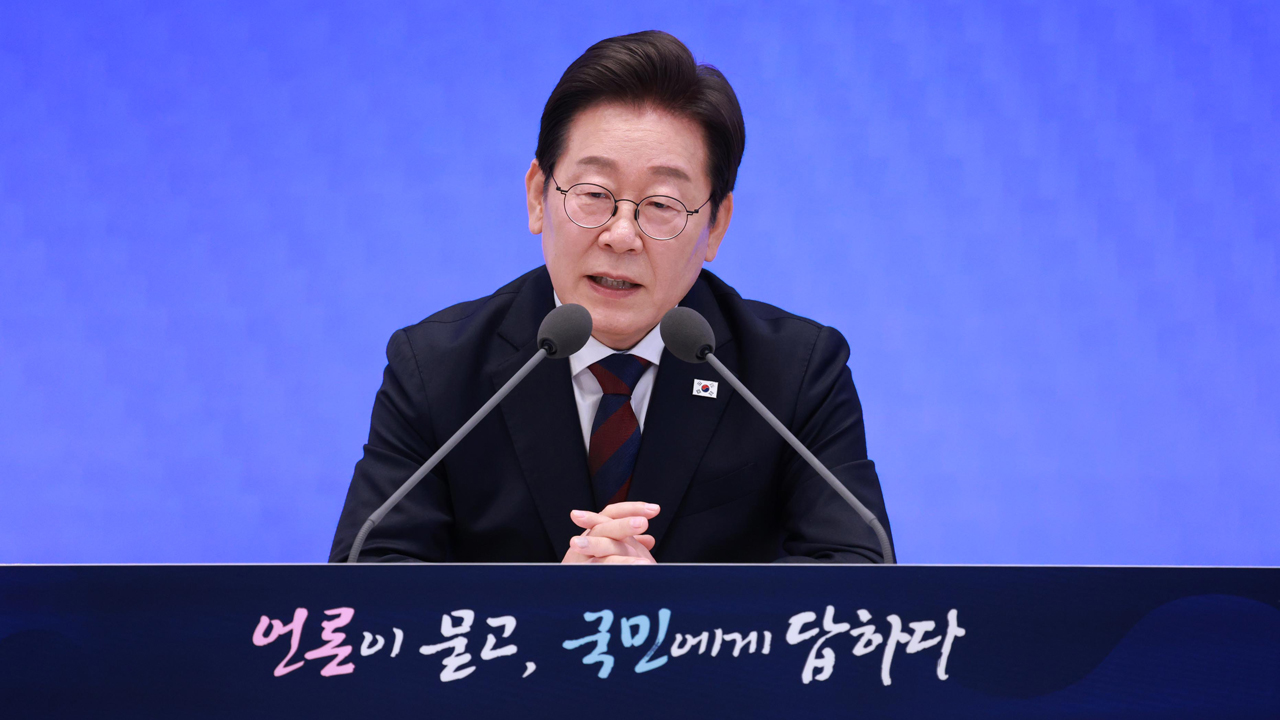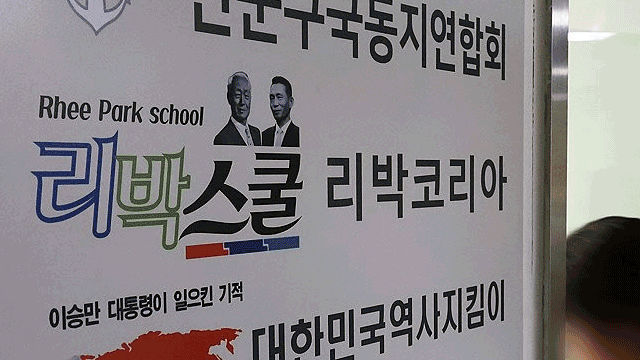Efforts made to expedite appointment of three vacant Constitutional Court justices
입력 2024.12.16 (00:42)
읽어주기 기능은 크롬기반의
브라우저에서만 사용하실 수 있습니다.
[Anchor]
The impeachment motion against President Yoon must be approved by at least six constitutional judges to be upheld.
Currently, with three positions vacant, the system consists of six judges, and if even one opposes, it will be dismissed.
Therefore, efforts are being made to expedite the appointment of the three judges recommended by the National Assembly, and reporter Kim Yong-jun has analyzed the future outlook.
[Report]
The ruling and opposition parties have completed the formation of a special committee for the confirmation hearing of the three vacant constitutional judge candidates.
They are coordinating schedules with the goal of voting on the appointment agreement within this month.
It is reported that they are considering holding confirmation hearings either over three days on the 21st and 23rd to 24th, or over two days on the 23rd and 24th.
The People Power Party has recommended lawyer Jo Han-chang, while the Democratic Party has recommended Chief Judge Jeong Gye-seon and Presiding Judge Ma Eun-hyeok.
The nine constitutional judges are appointed by the president, with three recommended each by the president, the Chief Justice, and the National Assembly.
However, the three judges to be recommended by the National Assembly has been delayed due to disputes between the ruling and opposition parties over who would recommend two candidates, resulting in a six-judge system lasting nearly two months.
Currently, all constitutional judges are former judges appointed across both the previous and current administrations.
They are classified as two with progressive tendencies and four with moderate or conservative tendencies.
According to the quorum rules, for the impeachment to be upheld, all six sitting judges must agree. But in a situation where there are not nine judges, any result could lead to controversy.
During the trial of former President Park Geun-hye, the Chief Justice retired due to the expiration of their term during the proceedings, leading to an eight-judge trial, which raised concerns about the infringement of the right to a fair trial.
So, can an acting authority appoint constitutional judges that the president is supposed to appoint?
The conclusion is that since there are no specific limits or boundaries to the authority of an acting authority, the answer is both yes and no.
In fact, during the two previous impeachment cases, there have been both instances where, depending on who the recommending party was, an acting authority did and did not make appointments.
However, most constitutional scholars believe that since the appointments are not the president's share but rather a procedural formality for the National Assembly's recommendations, there should be no issues with the appointments.
This is KBS News, Kim Yong-jun.
The impeachment motion against President Yoon must be approved by at least six constitutional judges to be upheld.
Currently, with three positions vacant, the system consists of six judges, and if even one opposes, it will be dismissed.
Therefore, efforts are being made to expedite the appointment of the three judges recommended by the National Assembly, and reporter Kim Yong-jun has analyzed the future outlook.
[Report]
The ruling and opposition parties have completed the formation of a special committee for the confirmation hearing of the three vacant constitutional judge candidates.
They are coordinating schedules with the goal of voting on the appointment agreement within this month.
It is reported that they are considering holding confirmation hearings either over three days on the 21st and 23rd to 24th, or over two days on the 23rd and 24th.
The People Power Party has recommended lawyer Jo Han-chang, while the Democratic Party has recommended Chief Judge Jeong Gye-seon and Presiding Judge Ma Eun-hyeok.
The nine constitutional judges are appointed by the president, with three recommended each by the president, the Chief Justice, and the National Assembly.
However, the three judges to be recommended by the National Assembly has been delayed due to disputes between the ruling and opposition parties over who would recommend two candidates, resulting in a six-judge system lasting nearly two months.
Currently, all constitutional judges are former judges appointed across both the previous and current administrations.
They are classified as two with progressive tendencies and four with moderate or conservative tendencies.
According to the quorum rules, for the impeachment to be upheld, all six sitting judges must agree. But in a situation where there are not nine judges, any result could lead to controversy.
During the trial of former President Park Geun-hye, the Chief Justice retired due to the expiration of their term during the proceedings, leading to an eight-judge trial, which raised concerns about the infringement of the right to a fair trial.
So, can an acting authority appoint constitutional judges that the president is supposed to appoint?
The conclusion is that since there are no specific limits or boundaries to the authority of an acting authority, the answer is both yes and no.
In fact, during the two previous impeachment cases, there have been both instances where, depending on who the recommending party was, an acting authority did and did not make appointments.
However, most constitutional scholars believe that since the appointments are not the president's share but rather a procedural formality for the National Assembly's recommendations, there should be no issues with the appointments.
This is KBS News, Kim Yong-jun.
■ 제보하기
▷ 카카오톡 : 'KBS제보' 검색, 채널 추가
▷ 전화 : 02-781-1234, 4444
▷ 이메일 : kbs1234@kbs.co.kr
▷ 유튜브, 네이버, 카카오에서도 KBS뉴스를 구독해주세요!
- Efforts made to expedite appointment of three vacant Constitutional Court justices
-
- 입력 2024-12-16 00:42:33

[Anchor]
The impeachment motion against President Yoon must be approved by at least six constitutional judges to be upheld.
Currently, with three positions vacant, the system consists of six judges, and if even one opposes, it will be dismissed.
Therefore, efforts are being made to expedite the appointment of the three judges recommended by the National Assembly, and reporter Kim Yong-jun has analyzed the future outlook.
[Report]
The ruling and opposition parties have completed the formation of a special committee for the confirmation hearing of the three vacant constitutional judge candidates.
They are coordinating schedules with the goal of voting on the appointment agreement within this month.
It is reported that they are considering holding confirmation hearings either over three days on the 21st and 23rd to 24th, or over two days on the 23rd and 24th.
The People Power Party has recommended lawyer Jo Han-chang, while the Democratic Party has recommended Chief Judge Jeong Gye-seon and Presiding Judge Ma Eun-hyeok.
The nine constitutional judges are appointed by the president, with three recommended each by the president, the Chief Justice, and the National Assembly.
However, the three judges to be recommended by the National Assembly has been delayed due to disputes between the ruling and opposition parties over who would recommend two candidates, resulting in a six-judge system lasting nearly two months.
Currently, all constitutional judges are former judges appointed across both the previous and current administrations.
They are classified as two with progressive tendencies and four with moderate or conservative tendencies.
According to the quorum rules, for the impeachment to be upheld, all six sitting judges must agree. But in a situation where there are not nine judges, any result could lead to controversy.
During the trial of former President Park Geun-hye, the Chief Justice retired due to the expiration of their term during the proceedings, leading to an eight-judge trial, which raised concerns about the infringement of the right to a fair trial.
So, can an acting authority appoint constitutional judges that the president is supposed to appoint?
The conclusion is that since there are no specific limits or boundaries to the authority of an acting authority, the answer is both yes and no.
In fact, during the two previous impeachment cases, there have been both instances where, depending on who the recommending party was, an acting authority did and did not make appointments.
However, most constitutional scholars believe that since the appointments are not the president's share but rather a procedural formality for the National Assembly's recommendations, there should be no issues with the appointments.
This is KBS News, Kim Yong-jun.
The impeachment motion against President Yoon must be approved by at least six constitutional judges to be upheld.
Currently, with three positions vacant, the system consists of six judges, and if even one opposes, it will be dismissed.
Therefore, efforts are being made to expedite the appointment of the three judges recommended by the National Assembly, and reporter Kim Yong-jun has analyzed the future outlook.
[Report]
The ruling and opposition parties have completed the formation of a special committee for the confirmation hearing of the three vacant constitutional judge candidates.
They are coordinating schedules with the goal of voting on the appointment agreement within this month.
It is reported that they are considering holding confirmation hearings either over three days on the 21st and 23rd to 24th, or over two days on the 23rd and 24th.
The People Power Party has recommended lawyer Jo Han-chang, while the Democratic Party has recommended Chief Judge Jeong Gye-seon and Presiding Judge Ma Eun-hyeok.
The nine constitutional judges are appointed by the president, with three recommended each by the president, the Chief Justice, and the National Assembly.
However, the three judges to be recommended by the National Assembly has been delayed due to disputes between the ruling and opposition parties over who would recommend two candidates, resulting in a six-judge system lasting nearly two months.
Currently, all constitutional judges are former judges appointed across both the previous and current administrations.
They are classified as two with progressive tendencies and four with moderate or conservative tendencies.
According to the quorum rules, for the impeachment to be upheld, all six sitting judges must agree. But in a situation where there are not nine judges, any result could lead to controversy.
During the trial of former President Park Geun-hye, the Chief Justice retired due to the expiration of their term during the proceedings, leading to an eight-judge trial, which raised concerns about the infringement of the right to a fair trial.
So, can an acting authority appoint constitutional judges that the president is supposed to appoint?
The conclusion is that since there are no specific limits or boundaries to the authority of an acting authority, the answer is both yes and no.
In fact, during the two previous impeachment cases, there have been both instances where, depending on who the recommending party was, an acting authority did and did not make appointments.
However, most constitutional scholars believe that since the appointments are not the president's share but rather a procedural formality for the National Assembly's recommendations, there should be no issues with the appointments.
This is KBS News, Kim Yong-jun.
-
-

김용준 기자 okok@kbs.co.kr
김용준 기자의 기사 모음
-
이 기사가 좋으셨다면
-
좋아요
0
-
응원해요
0
-
후속 원해요
0












![[단독] 김민석 총리, 취임 첫 일정으로 ‘송미령 반대’ 농민단체 농성장 방문](/data/news/2025/07/03/20250703_YUTdgQ.png)


이 기사에 대한 의견을 남겨주세요.